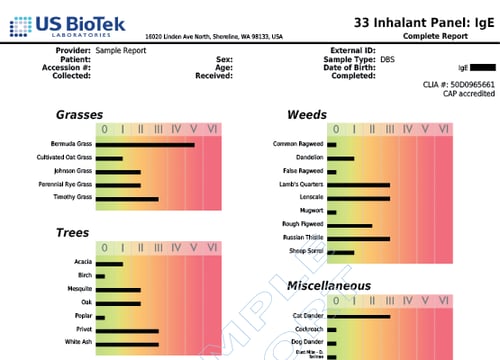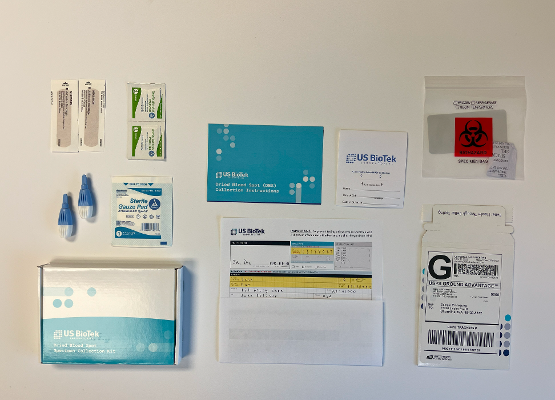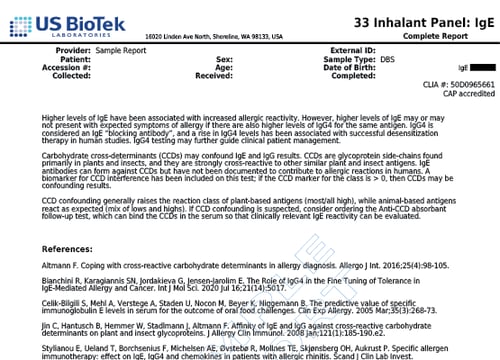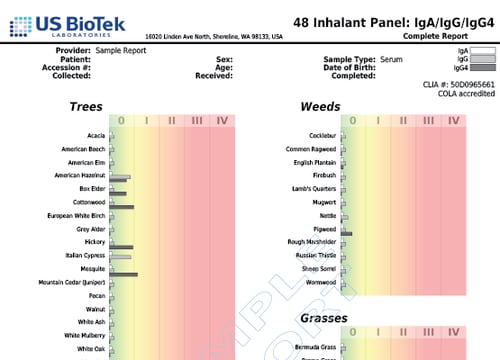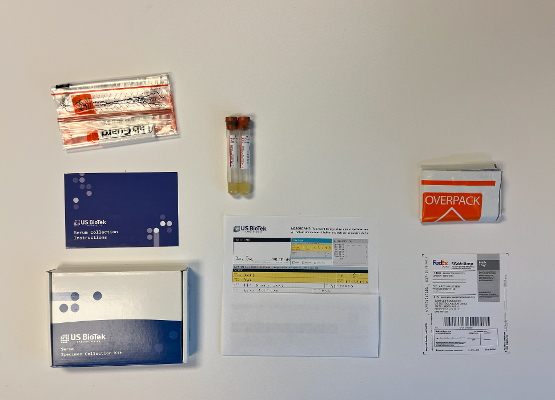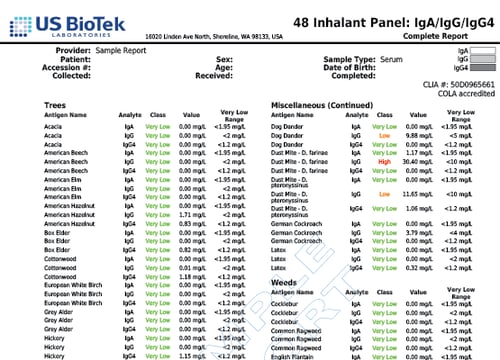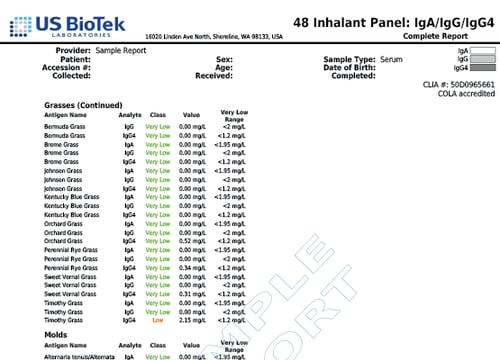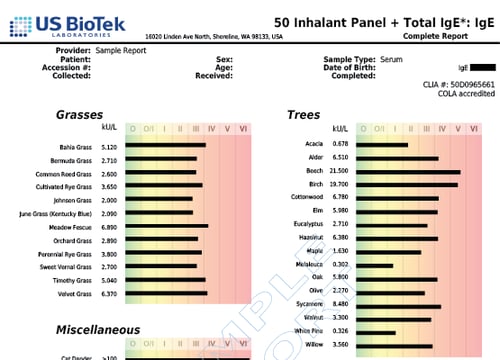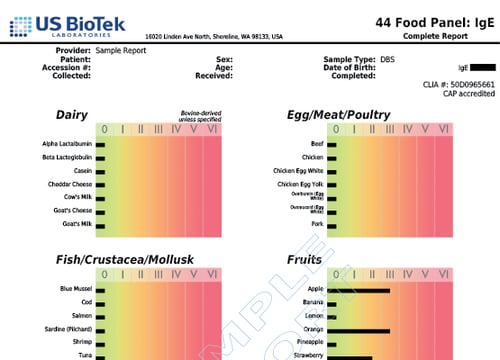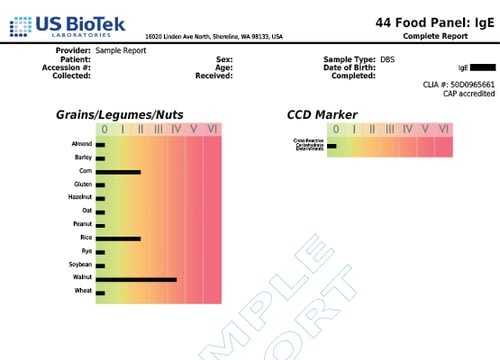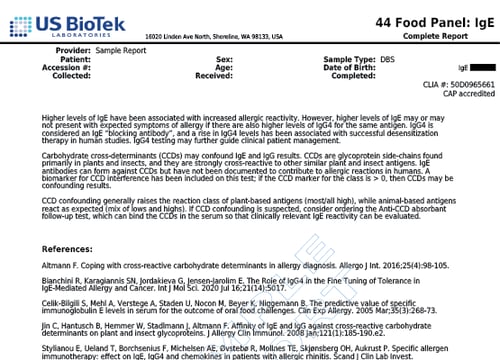33 Inhalant Allergy Panel
Our 33 Inhalant IgE Panel is a crucial tool for managing allergies, offering insights into antibody responses to 33 airborne allergens like trees, grasses, mold, and dust. This test is designed for precision and convenience, compatible with both serum and dried blood spot card samples. It's an invaluable resource for effective patient allergy management, catering to a range of symptoms from minor to severe.
- GRASSES
- WEEDS
- TREES
- MOLDS
- MISCELLANEOUS
- CCD MARKER

This test can be run either on Dried Blood Spot or Serum samples.
| IgE | |
| Serum Requirements | 1 ml |
| Blood Spot Requirements | 10 spots |

4 Simple Steps to Results

Steps 1
ORDER THE KIT
Collection Kits are free for US BioTek account holders and ship within 1 business day

Steps 2
COLLECT SAMPLE
Kits are designed for the simplest & most hygienic collection process possible

Steps 3
SHIP SAMPLE
Prepaid return shipping labels are included making shipping simple

Steps 4
RECIEVE RESULTS
Results are delivered to the provider portal with industry leading turnaround times.
Grasses
- Bermuda Grass
- Cultivated Oat Grass
- Johnson Grass
- Perennial Rye Grass
- Timothy Grass
Weeds
- Common Ragweed
- Dandelion
- False Ragweed
- Lamb's Quarters
- Lenscale
- Mugwort
- Rough Pigweed
- Russian Thistle
- Sheep Sorrel
Trees
- Acacia
- Birch
- Mesquite
- Oak
- Poplar
- Privet
- White Ash
Molds
- Alternaria tenuis/alternata
- Aspergillus fumigatus
- Candida albican
- Cladosporium Herbarum
- Penicillium notatum
Miscellaneous
- Cat Dander
- Cockroach
- Dog Dander
- Dust Mite - D. farinae
- Dust Mite - D. pteronyssinus
- Feather Mix: Canary, Chicken, Goose, Parakeet
- House Dust
CCD Marker
- Cross-Reactive Carbohydrate Determinants
Markers Tested
Grasses
- Bermuda Grass
- Cultivated Oat Grass
- Johnson Grass
- Perennial Rye Grass
- Timothy Grass
Weeds
- Common Ragweed
- Dandelion
- False Ragweed
- Lamb's Quarters
- Lenscale
- Mugwort
- Rough Pigweed
- Russian Thistle
- Sheep Sorrel
Trees
- Acacia
- Birch
- Mesquite
- Oak
- Poplar
- Privet
- White Ash
Molds
- Alternaria tenuis/alternata
- Aspergillus fumigatus
- Candida albican
- Cladosporium Herbarum
- Penicillium notatum
Miscellaneous
- Cat Dander
- Cockroach
- Dog Dander
- Dust Mite - D. farinae
- Dust Mite - D. pteronyssinus
- Feather Mix: Canary, Chicken, Goose, Parakeet
- House Dust
CCD Marker
- Cross-Reactive Carbohydrate Determinants
VeriTek Process

AUTOMATED SYSTEMS

SUPERIOR ASSAY PREPARATION

DUPLICATE TESTING

EXTERNAL ACCOUNTABILITY
Need Assistance With
Specimen Collection?
Accurate results start with proper specimen collections. Watch the video or download detailed instructions to walk you through the collection process.


